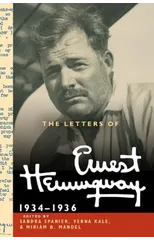Published in 1926, The Sun Also Rises is Ernest Hemingway's first novel and stunning portrait of wanderlust and disillusionment amongst the lost generation. In the aftermath of World War I, Jake Barnes wants the one thing he knows he can't have-the beautiful and vivacious Lady Brett Ashley. Physically scarred by the war and psychologically tortured by the nature of his injury, the hope of a relationship with the promiscuous divorcée is almost entirely out of the question despite any love felt between the two. It is a reality that Jake acknowledges but cannot completely accept. Meanwhile, Lady Brett embraces a newfound sense of sexual freedom in light of her divorce and enters into a number of love affairs, beginning with Jake's friend, and aspiring writer, Robert Cohn. As the three continue their travels through Europe, they expand their circle of friends to include another war veteran, Bill Gorton as well as the future fiance of Lady Brett, Mike Campbell and a young bullfighter, Pedro Romero. Living on the edge, the group indugles their wanderlust, engages in loose sexual escapades, and begin to drink away the memories of war and their disappointments with life-hoping to make sense of it all. Professionally typeset with a stunning new cover, The Sun Also Rises is a classic of American literature reimagined for modern readers.
Ernest Hemingway
Ernest Hemingway (1899-1961) was an American novelist, short story writer, and journalist known for his distinctive writing style and portrayal of masculinity. His most notable works include "The Old Man and the Sea," "A Farewell to Arms," and "The Sun Also Rises." Hemingway's writing is characterized by its spare prose, realistic dialogue, and emphasis on themes of war, love, and loss. He is credited with revolutionizing the modern American novel and influencing generations of writers with his minimalist approach to storytelling. "The Old Man and the Sea," a novella about an aging fisherman's struggle with a marlin, remains one of Hemingway's most famous and enduring works, winning him the Pulitzer Prize for Fiction in 1953 and solidifying his reputation as a literary giant.












